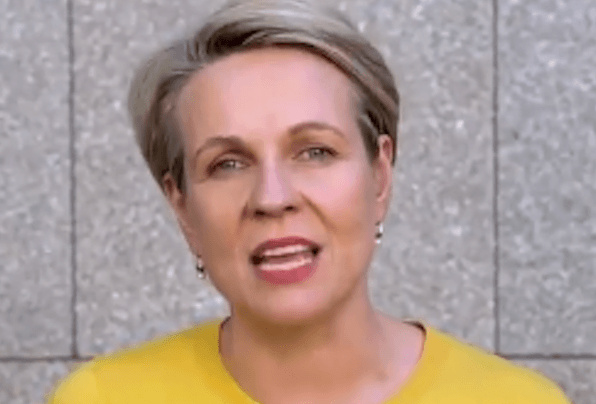Labor says the plan will also make it easier for employers to pay more superannuation. It will phase out the $450 a month pay threshold currently required to be eligible for super payments.
“The gender pay gap and taking time out to have kids, means that women will retire with about 40 per cent less super than men,” Deputy Opposition Leader Tanya Plibersek said in a video announcing the policy. She later added the policy is a “real cracker for women.”
Women in Super has described the move as an important step in bridging the super gender gap at retirement.
“Introducing super on paid parental leave and removing the $450 monthly earning threshold are two key planks of the Women in Super ‘Make Super Fair’ campaign and key recommendations of the Senate Inquiry into Economic Security for Women in Retirement,” said Women in Super Chair Cate Wood in a statement.
“We are also pleased that the Opposition has committed to consider the impact that any future changes to super would have on women.”
Women in Super said there are four key reasons for the super gap, including the pay gap — which has hovered between 14 and 18% over the last two decades — as well as time out of the paid workforce, unfair tax concessions affecting women, and the necessity for policy reform to provide low income earners with additional annual contributions to help address the structural imbalance on women’s retirement savings.
Below, Financy’s Bianca Hartge-Hazelman shares her take on the new plan.
______________
Federal Labor’s proposed top-up payments to help women close the gender gap in superannuation savings is a great start, but it needs to go further to make a meaningful improvement to the economic security of Australian women.
According to a Fairfax Media report Labor will pledge a top-up financial boost for 167,000 women on the Commonwealth paid parental leave scheme and another 80,000 recipients of the “dad and partner payments” scheme.
Australian women retire with 40% less superannuation than men. Labor is taking steps to change that. https://t.co/54oaOlJwBd
— Tanya Plibersek (@tanya_plibersek) September 18, 2018
But with over 3-million women in full-time work, and about 2.7-million in part-time work, it is fair to say that we need a much bigger action plan to help narrow the superannuation savings gap that affects most women.
In recent years, pressure has been mounting on the two major federal political parties to do something to address the super gap, which leaves the average woman with between 60 and 70 per cent of the retirement savings of men, once they reach about 65 years of age.
According to an analysis of AustralianSuper’s 2.2 million members, the average woman retires with $87,486 compared $125,534 for men. Meanwhile, older single women are currently the fastest growing cohort of homeless people in Australia.
The gender gap in superannuation can be attributed to lower average wages among women and the fact that women take longer career breaks, or are more likely to work part-time to care for children and loved ones.
The current superannuation system does not pay super on either the paid or unpaid components of parental leave. This means that any decision to pay super on parental leave is often left to employers.
Over the past 18 months we have see a rise in corporates starting to offer this, particularly among financial services companies.
Opposition Leader Bill Shorten will outline a $400 million plan on today as part of a move aimed at making economic security for women one of his priorities at the next federal election.
Read more here:https://t.co/WgWbk7Ec5b
— Bill Shorten (@billshortenmp) September 18, 2018
Shorten’s plan is a key differentiator to the Coalition government when it comes to policies affecting women, with Prime Minister Scott Morrison currently preoccupied trying to contain a Liberal Party row over the shortage of women in Parliament and concerns about bullying in the party.
Fairfax Media says the proposed payments would be targeted at the same parents who qualify for the Commonwealth’s paid parental leave scheme, which offers $719.35 a week for 18 weeks for those who meet a work test and earn less than $150,000 a year.
There’s no question that this expected announcement is a great start, but what’s needed are more details on rolling this out more broadly to ensure private sector companies also follow-suit.


